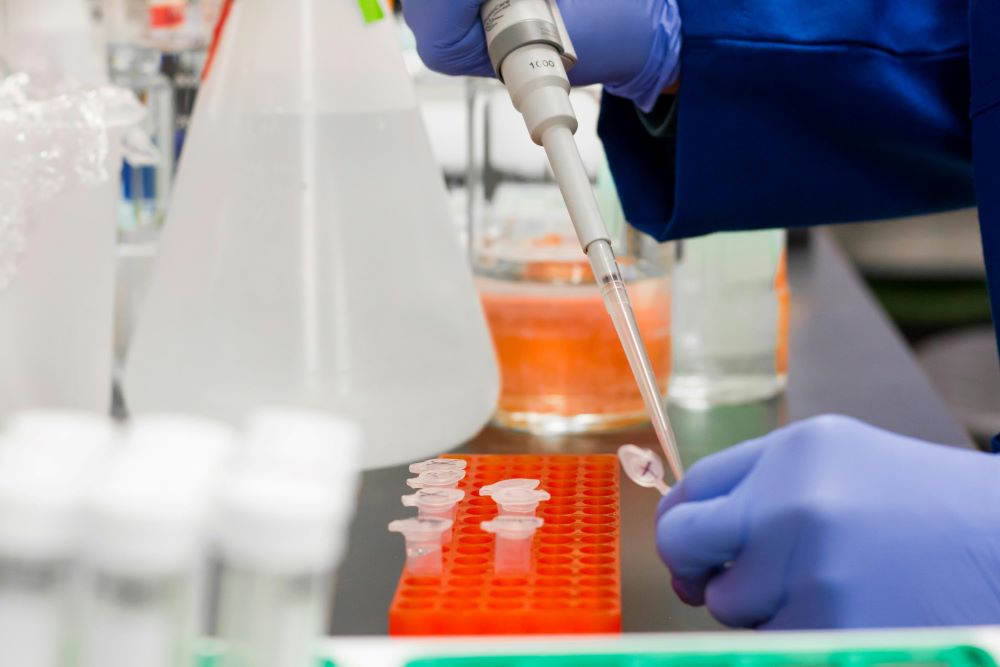MZ1 may help in the treatment of certain cancers and neurodegenerative disorders.
Researchers at the University of Dundee recently took a closer look at how molecules known as protein degraders can aid in the treatment of diseases that have long been considered “undruggable,” including certain cancers and neurodegenerative disorders. These developments come from the Centre for Targeted Protein Degradation (CeTPD), a leading research center focused on how protein degraders operate and their application in the development of innovative therapies.
Currently, more than 50 protein degrader drugs are undergoing clinical trials, targeting diseases for which have rendered traditional treatments ineffective. The latest research from the Dundee team involved detailed findings about the mechanisms of protein degraders, improving the precision with which they can be applied at a molecular level.
PhD student Charlotte Crowe and Dr. Mark Nakasone, a senior postdoctoral scientist at CeTPD, used cryo-electron microscopy (cryo-EM) to visualize interactions between biomolecules. The technique involved flash-freezing proteins, then using a focused electron beam to capture millions of 2D images before organizing them into three-dimensional models. This method allowed the team to create an intricate moving image of how protein degraders function, drawing attention to their potential to precisely target and neutralize disease-causing proteins.

Proteins are central to cellular function and are involved in numerous processes through the body. When they malfunction, they can lead to the development of many different diseases. Targeted protein degradation, used by the team, involves reprogramming the cellular protein recycling systems to eliminate dysfunctional proteins. Protein degraders bind to disease-causing proteins and attach them to cellular protein-recycling components in the body. This process involves tagging unwanted proteins with ubiquitin, a small protein that signals them for destruction.
The researchers focused on a specific protein degrader molecule called MZ1, developed in Professor Alessio Ciulli’s laboratory. Applying advanced mass spectrometry, they identified the precise locations on the target protein for ubiquitin tagging. The team’s findings, published in the journal Science Advances, represent an advancement in the field of targeted protein degradation (TPD) and scientific understanding of ubiquitin measures.
Crowe expressed excitement, stating, “We have reached a level of detail where we can see how these protein degraders work and can be deployed to recruit the disease-causing protein and target the ‘bull’s eye,’ in molecular terms.”
Professor Ciulli, director of CeTPD and a leading figure in targeted protein degradation research, added, “This is incredibly exciting work and opens up the possibility of even more effectively targeted drugs able to finally treat some diseases which up until now have been too difficult to tackle.”
The latest study, along with those that have been published before it, have steadily enhanced science’s understanding of how these processes can be used to develop new, more direct therapies that are more effective than traditional treatments, particularly in targeting “undruggable” diseases. As the field continues to advance, researchers are optimistic that even conditions that haven’t improved with typical interventions can be addressed and even eradicated. With the knowledge gained, the Dundee team hopes to accelerate the discovery of TPD drugs which could offer much-needed, viable treatment alternatives, giving patients and their families new hope.
Sources:
New insights on protein degraders open doors to treatment for ‘undruggable’ diseases


Join the conversation!